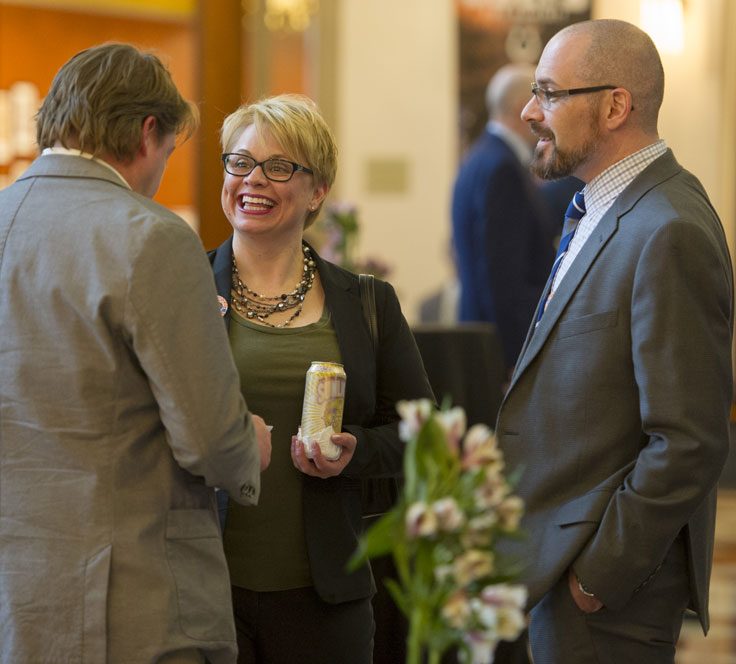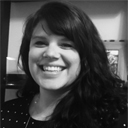
Purchase Tickets
Getting the Most Out of Your Conference Experience
May 15, 2019

This is part of our Midwestern Roots blog series, where we’ll be sharing exciting sneak peeks and information about the conference. Midwestern Roots Family History and Genealogy Conference will take place July 19 and 20 with preconference workshops on July 18. Find out more about Midwestern Roots and all the local and nationally-renowned speakers we have lined up for you as well as the a la carte preconference workshops in the Midwestern Roots Registration Guide. Register today – early bird pricing ends on June 16. Follow us on Twitter and use #MRoots2019 to let us know how excited you are about this year’s conference.
I’m a week back from attending the 2019 Ohio Genealogical Society Annual Conference. Outside of reviewing notes from great sessions, I’m back at my desk organizing business cards and sending emails to new friends and colleagues. Information overload followed by dinner with friends and experts in the field demands some time to decompress and review.
While many individuals mainly attend genealogy and history conferences for the advancement in research tactics and methods or to learn about the newest available resources and tools, there’s a whole other side to attending conferences – networking. Regular conference goers will often tell you the best part of a conference is the people and the chance to catch up with friends you see once a year and to meet new ones. At OGS, I kept running into one older woman in the lounge and even sat with her for a few sessions. As she put it, “A stranger is just a friend you haven’t met yet.”
One of the speakers commented that her favorite thing at conferences is to see everyone excitedly talking to the people next to them before her class starts. It’s an opportunity to geek out over your most recent family history find to people who are genuinely excited for you. It’s a valuable tool to meet with hundreds of fellow researchers, to share about your new favorite record set, to swap stories, and hopefully, hear one idea that can finally break through that brick wall you’ve been chipping away at for years.
This got me thinking. Meeting with others in the field is my main reason for attending conferences – for my job and personally. Some of my best tips, advice and connections came from the times before or after sessions or after hours over a nice juicy burger. That’s the type of experience you can’t get with an online class. Here are my tips for networking at conferences – test them out at Midwestern Roots and let me know how they worked for you.
Networking Tips for Genealogy Conferences
Like creating your research to-do list and making a plan when traveling to an archive, crafting a networking plan can really help you get your best conference experience and help prevent burnout.
Do Your Research
- Study the schedule. Are you attending to gain information to advance your own research? If so, review your own research to-do lists. What are the major hurdles you need assistance with? Compare this with session descriptions. What are the key sessions you need to attend to help you with this goal?
- Check the speaker list. Check their websites, blogs and social media for their expertise and experience. With a little bit of digging, you might be surprised which speaker could best answer your most burning question.
- Review the list of vendors. If one hasn’t been published, contact the conference organizers for a list. Oftentimes local genealogy chapters and organizations will have informational booths. If you’re attending a conference for help on an ancestor close to that locale, the volunteers or staff manning those tables can provide you with tons of information and help.
Make a Plan
- Determine which speakers you most wish to speak to. Recognize that sessions fill up and vendors can be busy with groups of people. Typically speakers are asked the most questions after their session, not before. Sometimes it works out best to skip out on the Q&A of a previous session to grab a seat early and see if it’s OK if you ask questions while they are getting their presentation set up. This can vary depending on the conference. If seats are filling up in many sessions, people are more likely to leave as soon as they can to grab a seat in the next class.
- The best time for quality conversation with vendors is during sessions. Keep in mind that some vendors also double as speakers. If you’re interested in working with them later for a project, make sure you’re handing out business cards or some piece of information about who you are, what you’re interested in and how they can contact you. Get in the habit of writing down what you spoke about on your card before you hand it over, and the same for the card or brochure you took.
- Jump on any one-on-one consultation offerings through the conference or nearby archives.
Phone a Friend
- If one of the speakers or vendors is a friend or colleague, reach out to schedule coffee, lunch or dinner. Encourage inviting as many people as they know. The more the merrier!
- If you’re new to conferences, reach out to nearby genealogy societies, libraries and archives to see if they know of anyone who is attending. Not only did you make new connections close to home, but they can also introduce you to a host of new people, too.
Location! Location! Location!
- Ask around where many people are going for lunch or dinner. Some conference venues have restaurants attached. If you don’t hear of any plans, just show up and ask to join other parties. We’re a friendly bunch. If you purchased tickets for a luncheon that doesn’t have assigned seating, sit with people you don’t know.
- Pay attention to how sessions are filling up and whether the flow of questions is before or after and adjust accordingly. If a speaker doesn’t have time to answer your question at the moment, ask if you could meet them at another time. If not, speakers usually provide their contact information for other questions.
- Plan to speak with vendors during sessions you aren’t super interested in. Vendors tend to be very busy the first day and sporadically during breaks.
Follow Up
- Review all your collected business cards and brochures.
- Touch base about a week or two after the conference allowing time for everyone to return back to normal. Waiting too long will allow time for them to forget about your conversation.
Do you have a special conference networking plan? What’s your greatest conference experience?









